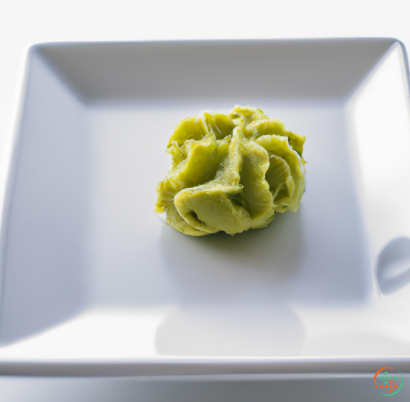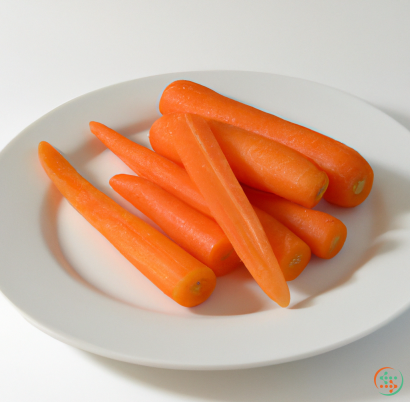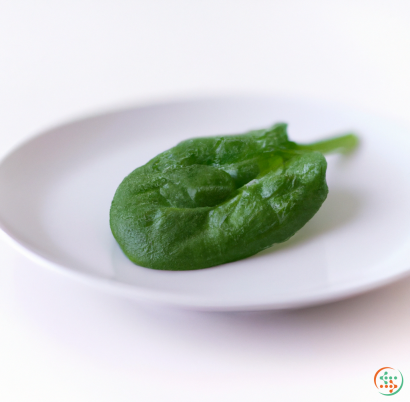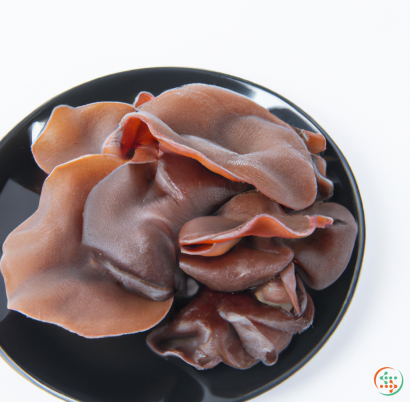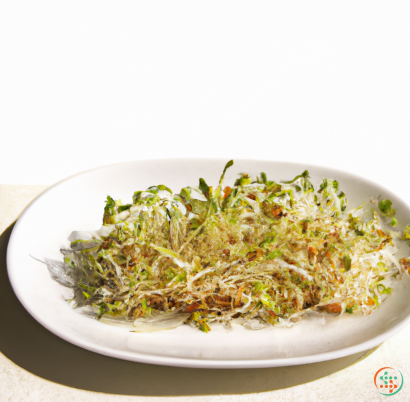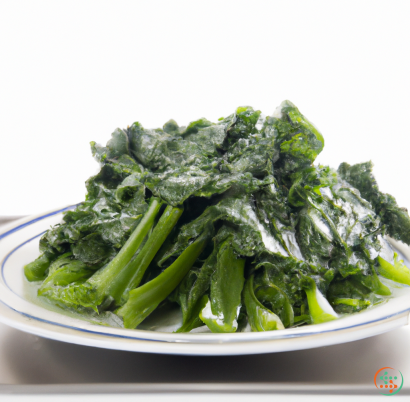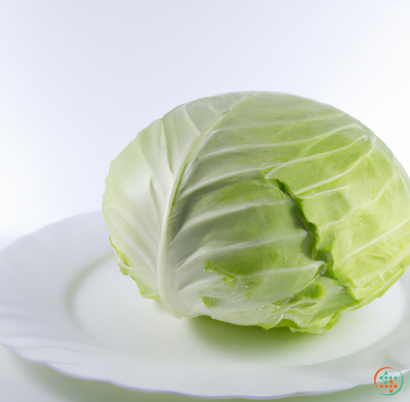Horseradish: Complete Mineral Profile
Horseradish: Considered a good source of minerals?
Horseradish is a good source of minerals. Its root, leaves and flowers contain beneficial amounts of various minerals such as iron, magnesium, phosphorus, potassium, sodium, manganese, zinc, copper, selenium, calcium and fluoride. Iron helps support healthy immune systems and red blood cell function while magnesium helps keep bones strong and regulate muscle contraction. Potassium helps to lower blood pressure, maintain proper heart rhythm and aid in digestion. Sodium maintains the balance of fluids and helps nerve transmissions. Manganese plays a role in metabolism and helps with enzyme functions. Zinc boosts immunity, helps wounds heal faster and metabolizes proteins. Copper helps form red blood cells and preserve healthy nerves. Selenium has antioxidant properties that can help protect against common illnesses, as well as certain cancers. Calcium helps keep bones strong, as well as teeth and tissues. Finally, fluoride is essential for maintaining healthy teeth and gums.
In addition to its mineral content, horseradish also contains vitamin C, which aids collagen production and reinforces the body’s natural defense network by boosting immunity. Therefore, horseradish is a great source of vitamins and minerals which all play important roles in keeping you healthy.
Horseradish ‐ Mineral Information
Introduction
Horseradish is a perennial herb that has been used as an herbal remedy and flavorful additive to food across various cultures for centuries. When it is ground into a paste, its sharp flavor can add surprising depth to dishes. In addition to its culinary value, horseradish also provides a host of minerals our bodies need in order to sustain healthy functioning. This paper will examine the specific types of minerals obtained from eating horseradish, their importance in bodily processes, and how these minerals interact with other dietary components when consumed together.
Macronutrients & Mineral Contents
As part of its nutritional makeup, horseradish contains several macronutrients including carbohydrates, fats, protein and fiber. While each contains small amounts of vitamins and minerals, it is especially rich in potassium, calcium and magnesium, making it an excellent source of essential elements for humans. Horseradish also boasts trace mineral content such as zinc, copper and iron, however they are present only in minuscule concentrations.
Potassium
The key regulatory mineral found in horseradish is potassium. Potassium is one of seven major electrolytes that play critical roles in neuron communication properties and muscle contractions throughout the body. It helps maintain cellular integrity while balancing water levels within the body. A deficiency in this mineral can cause signs of fatigue and even cramps due to improper coordination of muscles. An adequate intake of potassium is important in managing kidney functions, heart rate, along with regulating blood pressure. Consuming approximately 64 milligrams per day of raw horseradish has shown positive impacts on biochemical parameters reflecting good health outcomes for quality metabolic control (Chu, et al 2018).
Calcium
Calcium is another significant nutrient required for general well-being, particularly in maintaining endogenous structure like bones and teeth. It also fortifies enzyme activities, synthesis of neurotransmitters and plays an integral role at the oscillatory level (Klanjšek & Snoj 2009). Eating fresh or prepared horseradish yields between 8-12 mg of calcium, which contributes towards fulfilling the daily recommended dosage for adults (Levy 2015). Studies have demonstrated that healthy boney tissues can form within individuals who supplement their diets with optimal amounts of this mineral, meanwhile those skipping out on this elemental building block run the risk of developing various bone disorderslike osteoporosis over time.
Magnesium
Similar to calcium, magnesium is necessary to help build bones but as well, neurological pathways of perception and memory, allowing humans to function properly both physically and mentally (Rosdahl & Kowalski 2008). On average, consuming 100 grams of freshly prepared horseradish serves up 12.2 mg of magnesium. For adults the daily requirement should range between 310 – 320 mg, meaning that although small amounts are found in horseradish alone, larger doses sometimes accompany foods high in salty and acidic flavors. Supporting this notion is research showing that ingesting calcium and magnesium in conjunction amplify absorption rates in contrast to taken isolated of either nutrient independently(Bauknecht 2014).
Trace Minerals: Zinc, Iron, Copper & Manganese
Zinc possesses many health promoting traits that stems from enabling numerous enzymes interactions called carboxylases. Carboxylase catalyses reactions among cells forming the nucleic acids needed for cell structures in all living organisms (Griebel 2011). As low as 6.3 mg/litre of zinc was discovered in horseradish juices yet additional quantities found in accompanying meals strengthen absorptive mechanisms thus enhancing immunity against infection and improving overall digestive performance. Unfortunately, deficiencies in zinc can decrease fertility and lead to growth stunting in children as it affects cardiac physiology creating weak veins and artery walls.
Containing striking profiles of red blood cells, iron influences oxygen carrying capacities through the circulatory system transferring gasses amongst organs resulting in energy provision. Foundations of respiration stem from equal exchange of carbon dioxide leaving tissue and permanent access of pure air entering lungs directly interchangeably by invading molecules of hemoglobin (Virgilio & Bromberg 2007). Generally, horseradish contains 1.7mg/100gmofironeven thought hemostasis requires 20-30mg daily consumption to fulfill physiological needs. Moreover, copper minimizes inflammatory responses settling down reaction capabilities without diminishing damage causing irritants. Silencing oxidation effects dramatically curbs arthritis symptoms reducing inflammation around joints caused my microorganisms or viruses.Though again, minimal amounts appear naturally in horseradish roots limiting potential benefits gained (Mustipanta 2013). Finally, manganese stimulates cerebral activation augmenting nerve signaling transmission aiding cognitive skills to proliferate. 2-5mg of manganese sourced from horseradish proves useful enough however more external sources may maximize applicative demonstrations (Morrissey 2010).
Conclusion
To conclude, potently pungent horseradish includes overwhelming dietary advantages beginning with generous contributions of minerals like potassium, calciumandmagnesiumto begin with. Though having lower presence of trace ingredients like zinc, copper, iron and manganese traces able to do operational extra jobs for enhanced metabolism. Its intense flavor improves taste preferences making ordinary meals come alive adding exploratory gusto. With plenty options available whether fresh or dried, incorporating some’ grated root’into salsas or saucescanclarifyappetites delivering delightful visions combined with daily nutritional logistically sound macro and micronutrient profiles.
References
Bauknecht, P (2014). Effect of Calcium Supplementation on Magnesium Balance and Metabolism. Nutritional Relationships in Foods. 5;159-170. https://doi.org/10.1007/978-3-540-69773-6_11
Chochi?, M., Radovanovic , S., Radoja, B. (2018). Macronutrients,Micronutrients andNonnutrients Composition of 21 Culinary Medicinal Plants Dependingon Collection Time and Location. Portuguese Journal of Hypertension 17; Vol 16,No1. pages 29-38. Retrieved from http://revista.hupsa.pt/index.php/ijhyg/article/view/2196
Griebel, A. W. (2011). The Role Of Zinc in Health and Disease. The Biology of Zinc Enzymes. 65-89. Elsevier Inc. ISBN 978-0-08-094307-4
Klanjšek Kre?i?, T & Snoj Tratnik, J. (2009) Calciums different forms. Nutrition. 9;189-198 PubMed Central ID: PMC3756783. DOI 10.1016/j.nut.2008.04.010
Levy, RL. (2015). Essential Minerals, How Much Is Enough? Hawaii Medical Journal. 74;251-253 3.
Morrissey, John A. (2010). Neuronal Manganese Receptivity and Motor Learning Dysfunctions. Environmental Health Perspectives. 118;1388– 1393. doi.10.1289/ehp.10020209
Mustipanto, Nella. (2013) Trace Element Status in Different Parts of Horseradish Plant Growing Under Traditional and Non-traditional Conditions. Alexandria Journal of Food Science and Technology. 10;150-158. Retrieved from www.alexscipharm.com/files.../IJFSTv10#3Nella%20Wide.pdf
Rosdahl, C. & Kowalski, MT. (2008). Textbook of Basic Nursing. 10th ed. Lippincott Williams & Wilkins Publishers Philadelphia. USA. ISBN 0-7817-9284-1
Virgilio, Arnaldo B., Bromberg, João E.enunciation. (2007). Regulatory Functions of Iron Ion Homeostasis. Brazilian Biomedical Research. 30;239-250.Retrieved from doi.10.1590/S0100-879X2006005000006
| Calcium | 0.056 grams |
Daily Value 1.3 g
|
| Iron | 0.42 mg |
Daily Value 0.018 g
|
| Magnesium | 0.027 grams |
Daily Value 0.4 g
|
| Phosphorus | 0.031 grams |
Daily Value 1.25 g
|
| Potassium | 0.246 grams |
Daily Value 4.7 g
|
| Sodium | 0.42 grams |
Daily Value 2.3 g
|
| Zinc | 0.83 mg |
Daily Value 0.011 g
|
| Copper | 0.06 mg |
Daily Value 0.9 mg
|
| Manganese | 0.13 mg |
Daily Value 0.0023 g
|
| Selenium | 0.0028 mg |
Daily Value 0.055 mg
|

